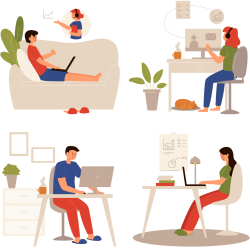To provide the best experiences, we use technologies like cookies to store and/or access device information. Consenting to these technologies will allow us to process data such as browsing behaviour or unique IDs on this site. Not consenting or withdrawing consent, may adversely affect certain features and functions.
The technical storage or access is strictly necessary for the legitimate purpose of enabling the use of a specific service explicitly requested by the subscriber or user, or for the sole purpose of carrying out the transmission of a communication over an electronic communications network.
The technical storage or access is necessary for the legitimate purpose of storing preferences that are not requested by the subscriber or user.
The technical storage or access that is used exclusively for statistical purposes.
The technical storage or access that is used exclusively for anonymous statistical purposes. Without a subpoena, voluntary compliance on the part of your Internet Service Provider, or additional records from a third party, information stored or retrieved for this purpose alone cannot usually be used to identify you.
The technical storage or access is required to create user profiles to send advertising, or to track the user on a website or across several websites for similar marketing purposes.
 A new YouGov poll commissioned by Working Families and SF Recruitment claims to underscore the impact and importance of employers prioritising flexible working as part of their recruitment strategy. Launched to mark the start of National Work Life Week (10-14 October), the poll of 992 UK parents of children aged 18 and under demonstrates that advertising all vacant roles with flexible options stated by default widens the talent pool for employers and unlocks opportunities for parents. (more…)
A new YouGov poll commissioned by Working Families and SF Recruitment claims to underscore the impact and importance of employers prioritising flexible working as part of their recruitment strategy. Launched to mark the start of National Work Life Week (10-14 October), the poll of 992 UK parents of children aged 18 and under demonstrates that advertising all vacant roles with flexible options stated by default widens the talent pool for employers and unlocks opportunities for parents. (more…)




































October 5, 2022
Will employees return to the office to save on energy bills this winter?
by Nick Gold • Comment, Flexible working